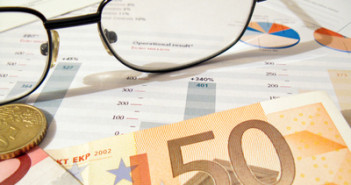EUR/USD is moving higher as we begin the new trading week. The markets were treated to some good news on the weekend, as Italy has finally formed a government, ending a prolonged political deadlock, In economic news, Eurozone PMI rose from 43.7 points to 44.2 points.The markets will be keeping an eye on German CPI, hoping that the inflation indicator can improve on recent disappointing German numbers. In the US, GDP was a major disappointment on Friday, falling well below the estimate. Today’s US highlight is Pending Home Sales.
Here is a quick update on the technical situation, indicators, and market sentiment that moves euro/dollar.
EUR/USD Technical
- Asian session: Euro/dollar edged higher, reaching a high of 1.3070, and consolidating at 1.3063. The pair continues to gain ground in the European session, and is testing the 1.31 line.
- Current range: 1.3050 to 1.3100.
Further levels in both directions:Â Â 
- Below: 1.3050, 1.3000, 1.2960, 1.2880, 1.2805, 1.2750 and 1.27.
- Above: 1.31, 1.3140, 1.3170, 1.3255, 1.3290, 1.3350 and 1.34.
- 1.3050 is providing support, but is vulnerable.
- On the upside, the pair is testing 1.31. 1.3170 is a key level.
Euro gaining ground, tests 1.31 line – click on the graph to enlarge.
EUR/USD Fundamentals
- All Day:Â German Preliminary CPI. Exp. -0.2%.
- 8:10 Eurozone Retail PMI. Actual 44.2 points.
- 9:12 Italian 10-year Bond Auction. Actual 3.94%.
- 12:30 US Core PCE Price Index. Exp. 0.1%.
- 12:30 US Personal Spending. Exp. 0.2%.
- 12:30 US Personal Income. Exp.0.4%.
- 14:00 US Pending Home Sales. Exp. 1.1%.
For more events and lines, see the EUR/USD
EUR/USD Sentiment
- Italy has a government: After months of paralysis, Italy has finally formed a government. The deadlock, which had paralyzed the Eurozone’s third largest economy and had kept the markets on edge, was finally broken as Enrico Letta was nominated as prime minister last week. Letta’s Democratic Party does not have a parliamentary majority, so the coalition he has cobbled together may not last for long. Letta, is considered a moderate and is liked within the Eurozone. The new government will be faced with an economy mired in recession and a sour electorate that is fed up with austerity measures. The markets were pleased by the news, and Italian 10-year bonds were down, dropping below 4%.
- US GDP Disappoints: With a long string of weak releases for the past month, perhaps it shouldn’t have been a surprise that US GDP for Q1 fell below expectations on Friday. The indicator improved sharply, climbing from -0.1% to 2.5%. However, the reading was a disappointment, as the markets had anticipated a gain of 3.1%. The weaker than expected reading from one of the most important economic indicators should serve as a wake up call that the US economy is hitting turbulence, which could affect the US dollar.
- German data falters: Germany churned out weak economic numbers last week, and the disappointing data hurt the euro. The continental currency took it on the chin on Tuesday, dropping sharply as German Service and Manufacturing PMIs posted readings below the 50-point level. This indicates contraction in these sectors, and points to weakness in the German economy. On Wednesday, German IFO Business Climate dropped sharply, from 106. 7 points to 104.4. This missed the estimate of 106.4 points. There was no relief on Friday as German Import Prices dropped from 0.3% to -0.1%. The estimate stood at 0.0%. This was the first negative reading since January. These figures have raised concerns in the markets, since the Eurozone has little chance of an economic recovery if Germany, the most powerful economy on the continent, doesn’t take the lead with solid economic numbers.
- More talk of ECB rate cuts: The Eurozone seems to be lurching from one crisis to another, as we have seen with the Cyprus bailout mess and the political impasse in Italy. Add to the mix weak economic activity from major economies in the Eurozone, and we could have a recipe for an interest rate cut by the ECB. Speculation that the ECB will take action is growing, and on Thursday, Goldman Sachs stated that it expects a 0.25% cut at this week’s policy meeting. The well-respected firm also revised its outlook for Eurozone growth for 2013, lowering it from -0.5% to -0.7%. The ECB does not meet until Thursday, but the growing possibility of an interest rate cut promises to be a hot topic throughout the week.



